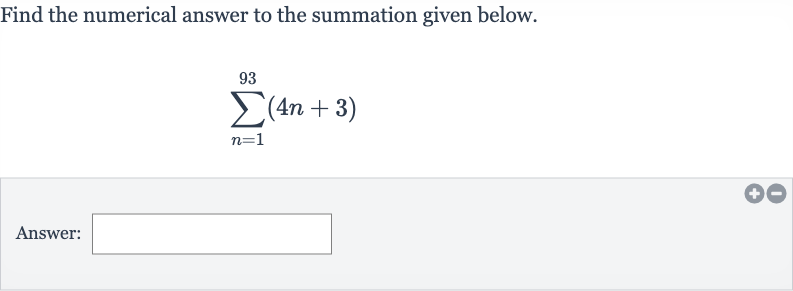Full solution
Q. Find the numerical answer to the summation given below.Answer:
- Arithmetic Series Representation: The summation given is an arithmetic series where each term can be represented as , with starting at and going up to . To find the sum of this series, we can use the formula for the sum of an arithmetic series, which is , where is the number of terms, is the first term, and is the last term.
- Find First and Last Terms: First, we need to find the first term and the last term of the series. The first term is obtained by substituting into the expression , which gives us . The last term is obtained by substituting into the expression , which gives us .
- Calculate Sum Formula: Now that we have the first and last terms, we can find the sum of the series. The number of terms is since we are summing from to . Using the formula , we get .
- Perform Calculations: We can now perform the calculations. First, we add the first and last terms: . Then we multiply this sum by the number of terms divided by : .
- Final Result: To simplify the calculation, we can multiply by , which gives us , and then divide by : .
- Final Result: To simplify the calculation, we can multiply by , which gives us , and then divide by : . Finally, we perform the division: . This is the sum of the series.

